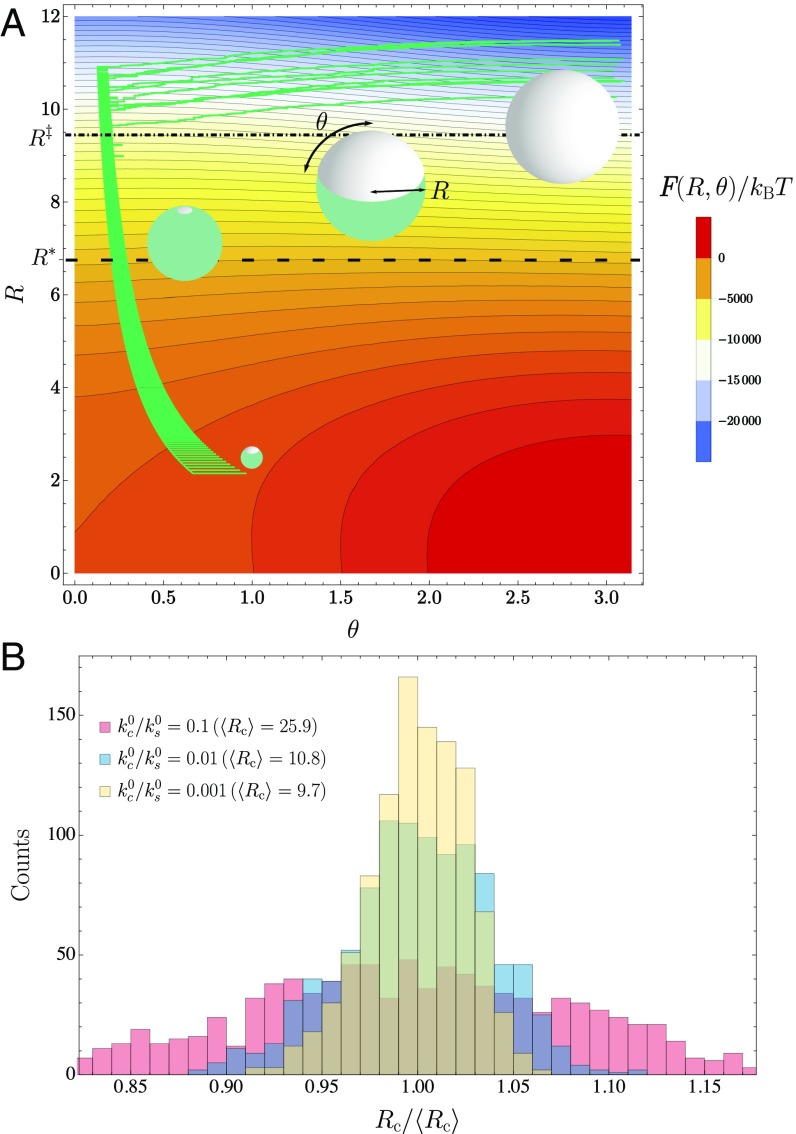Fig. 2.
Minimalist model for dynamics of cargo growth and encapsulation. (A) Our phenomenological model resolves only the radius of a cargo droplet and the polar angle of a spherical cap that coats it. As in Fig. 1, the green spherical droplet represents the cargo, and the gray coating represents the shell. Black contours indicate lines of constant free energy . Green lines show the course of 10 kinetic Monte Carlo trajectories under conditions favorable for microcompartment assembly (, all other parameters given in SI Appendix, section S4). Several structures along the assembly trajectory are shown near the corresponding values of and . Encapsulation is thermodynamically favorable for (lower dashed line). The free energy barrier to encapsulation is smaller than the thermal energy for (Eq. S43) (dotted-dashed line). (B) Histograms of microcompartment radius when reaches (at which point dynamics cease). Ten thousand independent trajectories were collected for = 0.1, 0.01, and 0.001. Radius values are given in a unit of length that is comparable to the shell monomer size (Eq. S37).

